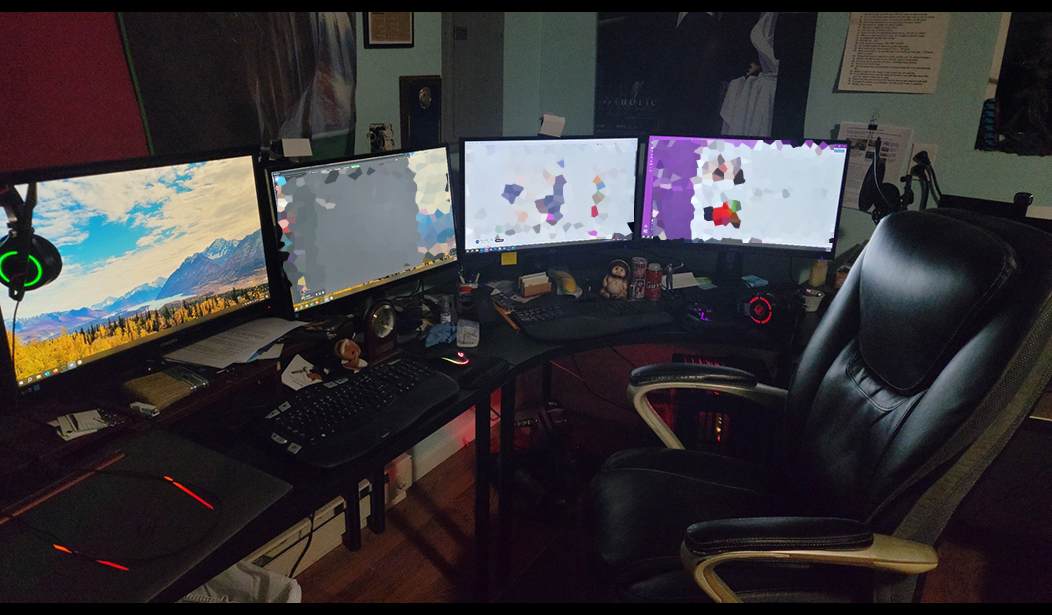Some years back, when my last old flip phone gave up the ghost, I took myself to the T-Mobile store near where we were living at the time to ask about a replacement. The phone was only three years old, and I was a little annoyed that it had died so quickly. "It's all solid state," I asked the clerk. "No moving parts. Why shouldn't this thing last for decades?"
"It's not meant to," the clerk said. "They keep updating the software. It outruns the hardware. If you get three years out of one of these, you're lucky."
That's been my experience with phones ever since. I'm currently on a Samsung Note 20, which I like because the big screen is easier to work with my huge gorilloid hands. But it's three years old, and our local Alaska cellular phone service people inform me I will likely have to replace it in the next year or two.
Why should this be necessary?
Now, we see that in October 2025, Microsoft will cease security updates to Windows 10, although a paid update service (for an operating system that was distributed free of charge to users) will be available for an additional three years, making Windows 10 machines usable until October 2028.
Microsoft Corp's (MSFT.O) plan to end support for Windows 10 operating system could result in about 240 million personal computers (PCs) being disposed, potentially adding to landfill waste, Canalys Research said.
The electronic waste from these PCs could weigh an estimated 480 million kilograms, equivalent to 320,000 cars.
While many PCs could remain functional for years post the end of OS support, Canalys warned demand for devices without security updates could be low.
Microsoft announced a plan to provide security updates for Windows 10 devices until October 2028 for an undisclosed annual price.
This is nothing new, of course; had I my druthers, I'd still be using Windows XP, as I liked it and I understood it; but in this line of work, when one is online all the time and also bound to attract some unwelcome attention, it's prudent to keep your security measures at a high level. That means using an OS that is receiving the latest security updates. And, yes, creating all these updates costs money.
But what, really, are we gaining with the forced update to Windows 11? Why the constant need for new operating software? Why the constant need to update cellular phone operating systems and apps? Why the push to constantly have to update your hardware?
I'm not talking about the social need to always have the latest and greatest. I don't get that either, just as I don't get why some people have to have a new car every couple of years — I buy a truck, drive it until the wheels come off, then buy another. I generally get 15-20 years out of a truck, and I wish I could get the same out of a computer or a smartphone. And bear in mind, in our modern, connected, high-tech society, it's harder every year to get along without these gizmos.
See Related: The Loneliness Epidemic Is Driving People Into Digital Arms That Aren't Even Human
Adding to the List of Paranoias, Now There Is Nomophobia - Fear of Being Without a Smartphone
What I'm concerned about is this constant, fast-paced update process in computers, phones, and probably all other kinds of tech I'm not familiar with. It affects all kinds of niche stuff, too; my wife runs a small publishing company, and her e-book and layout software is updated continually, which, at a minimum, requires a new video card in her desktop PC every now and then.
Here's my question: If an OS works, if it's well laid out and efficient, why mess with it? Why not just keep it and update it for security as needed? Why not just establish "Windows Forever" and keep the security updates current? If it ain't broke, why fix it? Ditto for our cellular phones. There's an OS in place that works. The apps work. Why the constant updates?
Well, we know the answer to that: There's a lot of money in making people replace hardware every few years. And it's not just new hardware. All this planned obsolescence comes with a hardware cost beyond just replacing equipment.
"Turning end-of-life computers into the magnets that power sustainable technologies like electric vehicles and wind turbines will help meet the rising global demand for electricity," said Noveon Magnetics Chief Commercial Officer Peter Afiuny.
Afiuny added hard drives are often discarded before they reach the end of their functional lifespan, creating an excess of rare earth magnetic material waste.
Battery recycling firm Redwood Materials said batteries can be nearly infinitely recycled to recover metals such as lithium, cobalt, nickel and copper.
All this will continue, of course. There's a reason my primary computer is a desktop; I can update components a few at a time (last summer, I just went through a major rebuild, motherboard, processor, RAM, hard drives, and video card, and it cost considerably less than just buying an equivalent new desktop would have cost) but in the many years I traveled for a living, I schlepped a laptop from place to place, and most of those can't be easily updated, hardware-wise. When the time comes, they just have to be replaced.
Granted, my complaining aside, this probably isn't going to change. There's just too much money in it. And, yes, there is the constant ongoing arms race with malware crooks and so forth; I admit, my understanding of computer software is about at the equivalent level of a guy who knows how to change the oil in his car but can't find the spark plugs.
Sure, our high-tech society has achieved wonders. When we go to our little community post office, at least two-thirds of the packages you see people picking up at the window are either Amazon or Walmart; online shopping has revolutionized life out here in the Alaska woods. And bear in mind that, instead of having to live in a major city and commuting to an office, I'm able to write these scintillating words here in my Susitna Valley office, and you can read them in the comfort of your own home. That's a vast difference from how the media worked when I was a young man in the '70s and '80s.
But boy howdy, isn't it frustrating at times? And it's going to be frustrating in October of next year. My big desktop tells me it's compatible with Windows 11 (I won't update until I have to), but I do have two laptops that aren't and won't be. That will require a decision that I don't want to make. But that, I suppose, is one of the prices of our modern technological society.














Join the conversation as a VIP Member